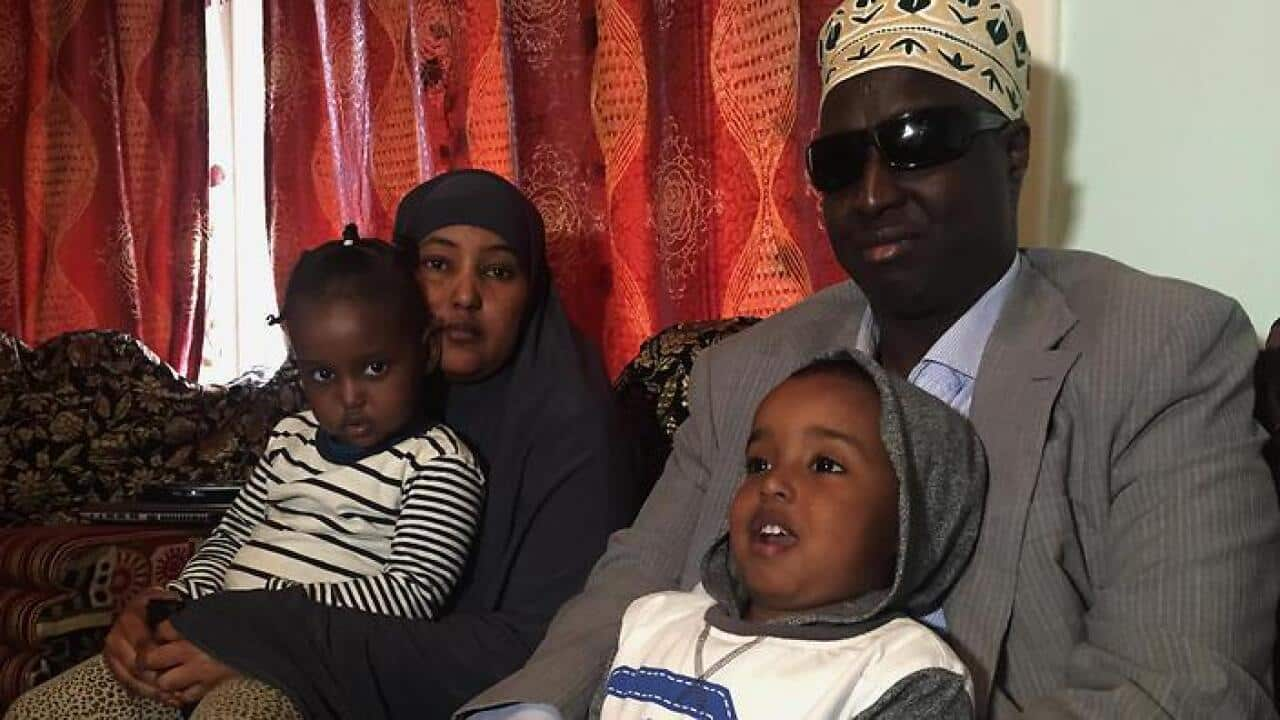While the creation of the National Disability Insurance Scheme (NDIS) has helped improve the care available for people with disabilities in Australia, experts say only a small percentage of recipients are eligible for accommodation under the scheme.
That's left families and carers considering a range of solutions and not all of them are good.
Two of Sarah Sutton's brothers, Ben and Peter, were diagnosed with schizophrenia at an early age.
The condition can cause a number of symptoms, including intense, but usually short-lived, episodes of psychosis, as well as non-psychotic symptoms which tend to last much longer, affecting mood, motivation, and emotional expression.

Sarah Sutton talks to SBS News. Source: SBS News
Ms Sutton's brothers are in the process of getting NDIS support plans, a move that Ms Sutton says will be life-changing for the family.
"My parents are in their 70s and getting old, and they have their own physical health issues because of the stress of providing daily support to my brothers ... things are just getting a lot harder for them," she told SBS News
"Basically my brothers don't receive adequate support in the community to live good lives and that often just fall back on the family."
Accommodation options
Getting support from the NDIS is one thing, but finding long-term accommodation is another challenge altogether.
The NDIS was designed as a support service and only assists people with very high needs, or about six per cent of recipients, with accommodation.
"State and territory governments are responsible for social and affordable housing," NDIS material says.
"Subject to waiting periods, state/territory government programs will support most people to find affordable housing in the general rental housing market."
"The NDIS may be able to provide extra assistance to Scheme participants, such as a Local Area Coordinator to make contact and discuss their needs with housing providers, and funded support co-ordination to assist sourcing appropriate housing options."

Sarah Sutton and her mother. Source: SBS News
But given the long waits for other social housing options, Ms Sutton's parents took matters into their own hands. They used their superannuation to buy the house next door and set it up as a family trust for the brothers to live in.
"So we all live very close by to each other, within a kilometre of each other, and that's so we can provide that daily support to them."
The Melbourne Disability Institute at the University of Melbourne and the Brotherhood of St Laurence are co-funding a project detailing the different housing options available for people with a disability, their carers and the services that support them.
Those options include social housing, the private rental market, unsupported accommodation, family-funded projects, group homes and living with ageing parents.
Joseph Connellan, Senior Manager of Housing at the Melbourne Disability Institute, said between 50,000 and 70,000 people accessing the NDIS are in need of accommodation, but are ineligible for the specialist disability accommodation it assists with.
Mr Connellan said the NDIS has brought advances in disability support, but the provision of housing must now be prioritised.
"What we now have is the support component come through but we have not had the housing component come through. It's important to understand where the responsibility for this lies," he said.
"It does not, in fact, lie with the NDIA, the agency. It actually sits with the state and territory governments. So what we are seeing now is those governments formulate plans on how it should be addressed."
Alternative living
Narelle Harrington is in her late 30s and has a moderate intellectual disability.
She was living with her mother Christine Harrington in private rental accommodation, but that all changed when her mother lost her job and the two women found themselves struggling in the private rental market.
Public housing seemed like the only option that would allow them to continue living together, until they were told about Kemira, a home on the New South Wales central coast run by IRT.

Christine Harrington and daughter Narrelle Harrington. Source: SBS News
Life-long leases and capped rent mean adult children can stay there after their parents die, using the disability support pension to pay for rent and NDIS funding for extra support.
"We live our separate lives now. We come together at tea time. Either I cook at tea time or Narelle cooks, but during the day because she has support, she is becoming much more independent in looking after her own home."
"And she's getting out and doing more things and being part of a group and fitting in and that's what our little community is about. We're extending. We haven't sort of left something, we're embracing something new."
They live in one of 12 units that were set up with the assistance of a government grant and are among a limited number of such models operating in Australia.
Long-term solutions
IRT CEO Patrick Reid said the biggest challenge is making its model a long-term solution.
"I think that the challenge though is the sustainability aspect. It took a grant and some in-kind funding from ourselves as well, cash and in-kind support to make this come to reality."
"So I think the model works. I think it supports people, I think it's a really good environment but I think it's tough to maintain."

Christine Harrington and daughter Narrelle Harrington. Source: SBS News
About 17,000 people with disabilities live in group homes in Australia and around 30 per cent of those have mild intellectual disabilities.
The quality of group homes varies dramatically, with instances of neglect and poor monitoring of clients expected to be mentioned at the Royal Commission into Violence, Abuse, Neglect and Exploitation of People with Disability.
Group homes were set up more than 50 years ago to move people with disabilities out of large institutions and into the community.
Many people with milder disabilities don't need to live in them but have no other option.
CEO of the Council for Intellectual Disability Justine O'Neill said for many older people with an intellectual disability, group homes can bring up dark memories from the past.
"I think it's important that we are sensitive to the history that people with intellectual disability have with being institutionalised."
"Many people who are ageing now with intellectual disability have had experience of being in institutions as children and not very happy experiences of being in institutions."

Thousands of Australians are being supported through the National Disability Insurance Scheme. Source: AAP
"It's really important that we don't reinstitutionalise people as they age and we really do respect people's rights to have support to live in the community like everyone else."
Joseph Connellan said the introduction of the NDIS provides a sense of optimism that could also be applied to producing new housing options for people with disabilities.
"It's a very complex, but valuable, opportunity that we're trying to now wade our way through and there are not experts in this place, and it's a case of walking beside people to try and get the best possible outcome."
The resource produced by The Melbourne Disability Institute and the Brotherhood of St Laurence will be released at the end of June.


